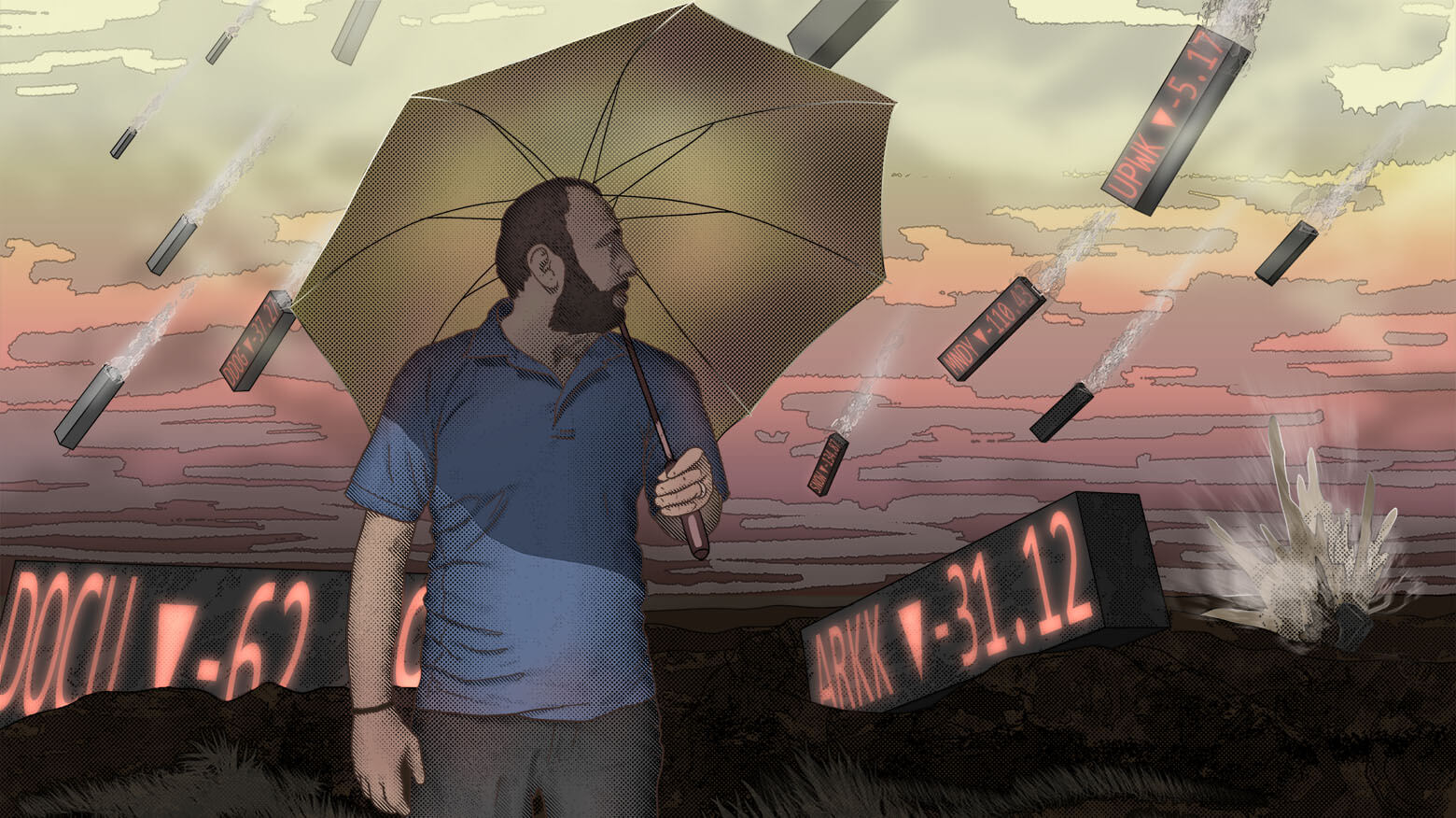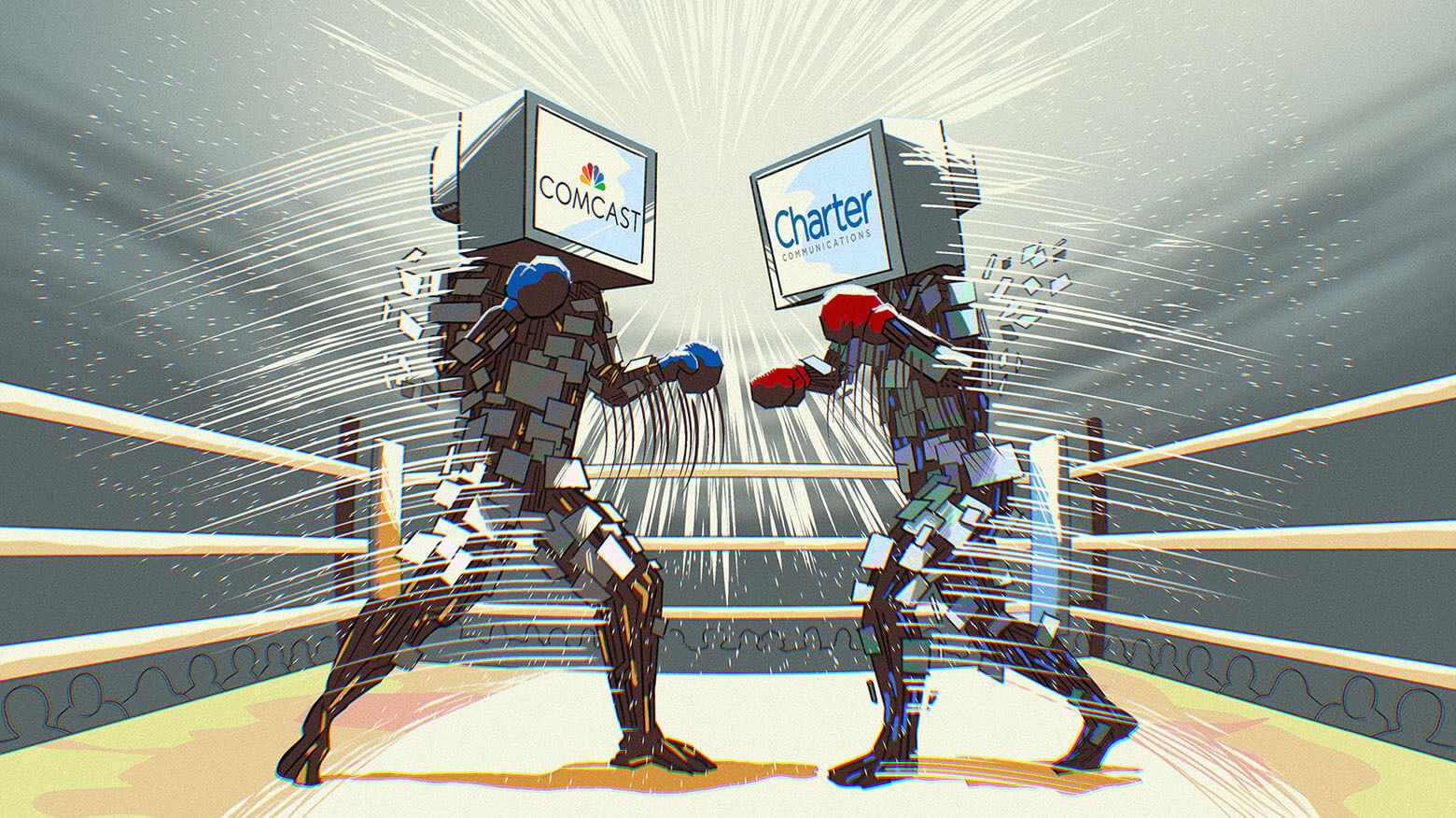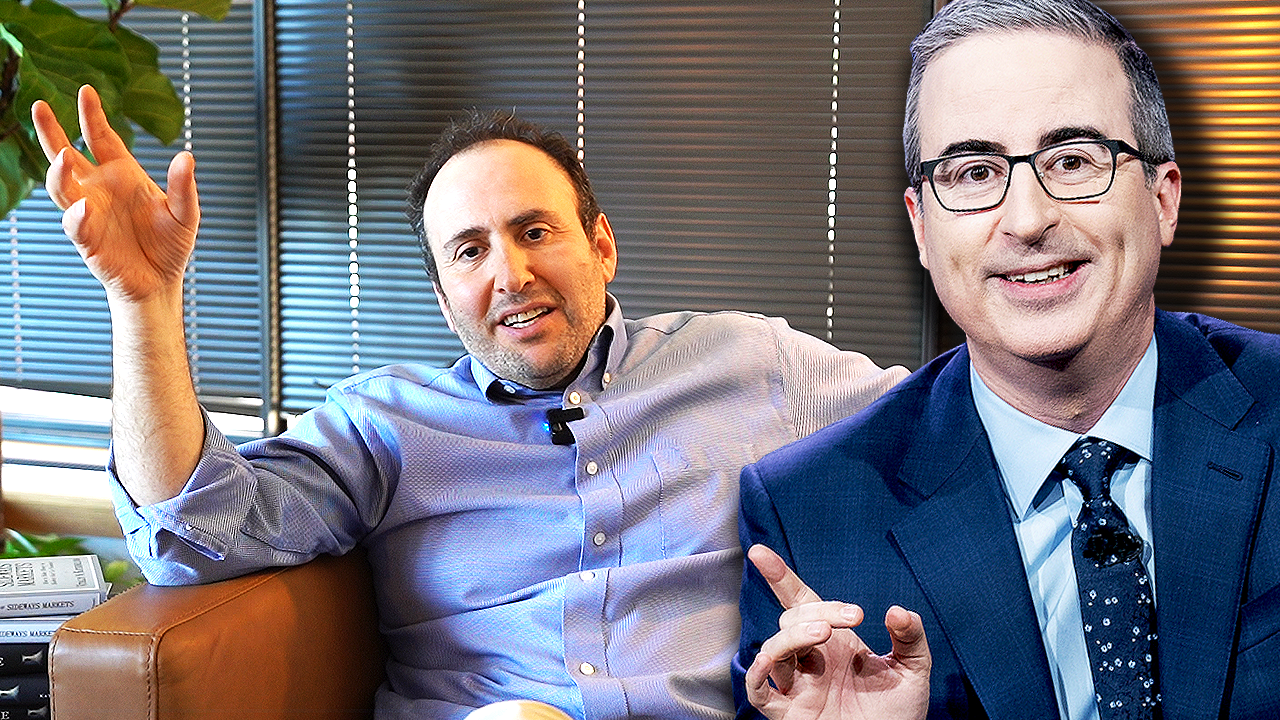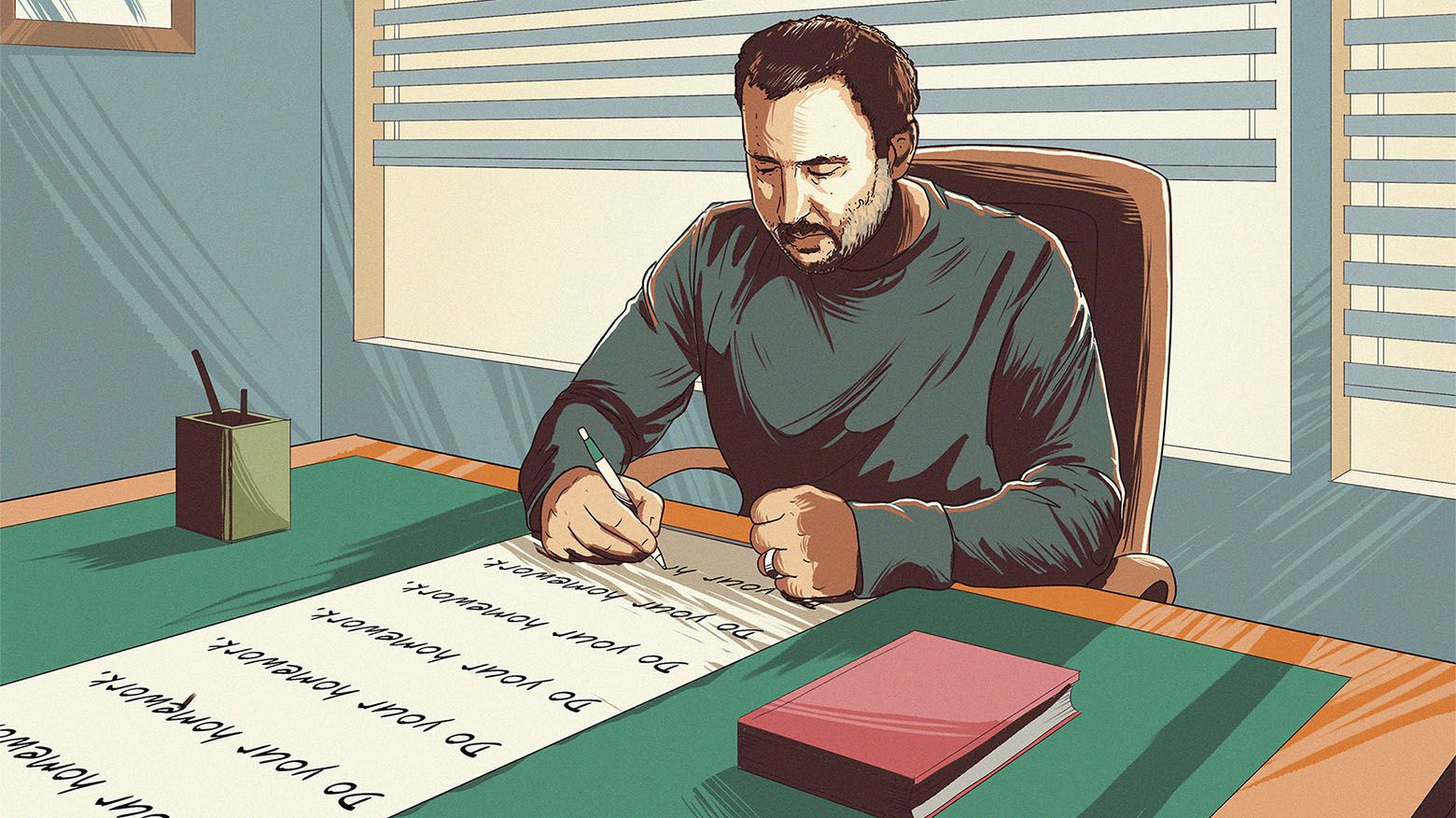Over the last few years, I killed a forest of good-looking trees writing about the insanity of what was going on in the stock market. These trees did not die in vain. Rising interest rates and inflation making multi-decade highs served as a bucket of cold water, waking investors up to the fact that a vivid imagination is not the only skill required to be an investor. Until recently, the investors who had the richest imaginations seemed to make the most money – until they lost years of gains in months.
Let’s take the ARK Innovation ETF (ARKK) – the poster child of the recent hysteria and until last year one of the best-performing funds in the market. It more than quadrupled from the pandemic lows to its peak in February 2021. Some companies it owned had business plans that looked like they were from sci-fi novels; many were going to revolutionize the world; most came with sci-fi-like (out of this world) valuations.
Cathie Wood, ARK’s fund manager, turned into an instant celebrity. The media and Wall Street did what they usually do – they hailed her as the next Warren Buffett. The performance of the ARK fund was compared with the then relatively abysmal performance of Berkshire Hathaway, showing that relatively young, vibrant, future-thinking Cathie had left the has-been nonagenarian Warren in the dust.
The better ARK performed, the more money flowed into ARKK (its main ETF), and the more sci-fi stocks it had to buy. Often ARK became the largest shareholder in relatively small companies, pushing the prices of ARKK stocks higher, which in turn drove ARKK’s net asset value higher. This created a vicious cycle, caused more FOMO for investors, and thus attracted more assets, divorcing stocks ARK held completely from reality. ARK’s assets surged in less than a year from $2 billion to almost $28 billion at the February 2021 peak.
It is easy to pick on Cathie Wood. We should not. Her fund was in the wrong place at the wrong time. Most importantly, if it was not her, it would have been someone else, another fund. The stock market, just like many other asset classes, was overtaken by temporary insanity triggered by a combination of low interest rates and enormous liquidity flushed into the system by Uncle Sam. For some time, the market was rich on imagination and scarce on common sense.
This movie is ending in a very predictable way. Higher interest rates activated a dormant gravitational field in the market. ARK stocks turned into horror stories, crashing down to mother earth. Investors who bought the fund at the peak are down more than 70%. All investors who bought ARK after mid-April 2020 and held on to the fund are down on their purchase. Since the majority of inflows to the fund occurred near the peak, most ARK investors got annihilated.
There is an interesting parallel between the run-up and crash in “digital” stocks during the pandemic and the Y2K bubble of 1999.
The market was already frothy in the late 1990s, full of dotcom speculation. In 1999 corporations were concerned that at the turn of the century, computer clocks, instead of taking us forward from 1999 to 2000, would take us back to 1900. Though this was a true risk only for old mainframes, it triggered a tsunami of upgrades for everyone. It seemed like every Fortune 10,000 company upgraded its computers to a new system.
The fierce combination of Y2K fever and demand created by all the newly formed dotcoms that were going to ride the wave of the internet to revolutionize the world (which they did) led to a substantial rise of sales for computer makers and other technology companies, substantially boosting their earnings.
Then the clock turned to a new century.
Tech companies discovered that pre-Y2K sales had pulled forward future demand, and dotcom companies ran out of other people’s money to fund their profitless growth (sound familiar yet?). Investors expected hockey-stick sales to continue but faced a decline in sales instead.
Tech stocks collapsed.
I am not just talking about Pets.com here, but real companies the likes of Dell Computer, Cisco Systems, and Microsoft. Some saw their sales decline for a few years and then resume growing again. That was the case with Cisco; while others, like Dell, saw a pause in sales growth for a year; and some lucky ones, like Microsoft, found their sales marching higher as if nothing had happened.
Investors who held onto these companies waiting to break even had to wait a long time. They did not see their prices reach 1999 highs for more than a decade. That is how long it took for earnings to grow into their 1999 valuations. (Cisco to this day has not touched its 1999 high).
I have made this point many times: The price you pay matters, and great companies get overvalued, too.
Just like tech companies during the Y2K/dotcom bubble, digital companies (many owned by Cathie Wood’s ARK) received a significant boost to their sales during lockdown. But sales only tell a small, surface part of the story. All of these companies went through a significant readjustment of their cost structure.
When a company is growing at a fast pace, management cannot help but draw straight or even parabolic lines into the future, preparing the company for current growth to continue, hiring new people, and investing in assets to support the future nirvana. As the rate of growth slows, comes to a stop, or god forbid goes negative, companies are forced to renormalize their employee and asset bases. This causes layoffs. This is contagious, as some of these companies consume each other’s products, causing some to see even greater sales slowdowns.
Ronald Reagan said, “A recession is when your neighbor loses a job; a depression is when you lose yours.” By this definition Silicon Valley is going through the early innings of either a recession or a depression, depending on where each person and each company sits.
Recessions are healthy, because they shift companies’ focus from outward (growth) to inward (operations). Prolonged high growth is not healthy. It creates a lot of inefficiencies, inflating corporate cost structures. When imagination runs wild, a lot of sci-fi projects get funded. As I write this, I’m seeing a headline coming through about Tesla laying off 10% of its salaried workforce. Tesla, ARK’s largest holding, is likely returning to its roots of building cars and holding off on the humanoid robots.
One can, of course, pray and hope for a bubble to get reinflated under these stocks. That may happen – stranger things have happened – but history suggests otherwise. Bubbles rarely hit the same group of stocks twice. There is a psychological reason for that: Holders who got burned on the first ride usually unload these stocks into run-ups. Also, this would require inflation to dissipate and interest rates to revisit new lows. Again, stranger things have happened.
From hope and pray land to what I think will likely happen
The news flow from Silicon Valley is likely going to get a lot worse in the coming months and maybe the next few years. Digital companies that were loved yesterday and still liked today will likely see their valuations get reevaluated and their stock prices decline further. Investors’ affection for them may change to hate and then to indifference as they move on to other shiny objects.
It is still hard to see this today, but some of these companies will be left for dead. This is what happened to many tech/dotcom darlings in the early 2000s. Some of them will become attractive opportunities; others will fade into irrelevance, forgotten footnotes in the history books. It will be our job to plug our noses and go through the future rubble to pick up some past growth darlings at a value price.










Great and instructiv as always…..
Kind regards from Dresden, Germsny